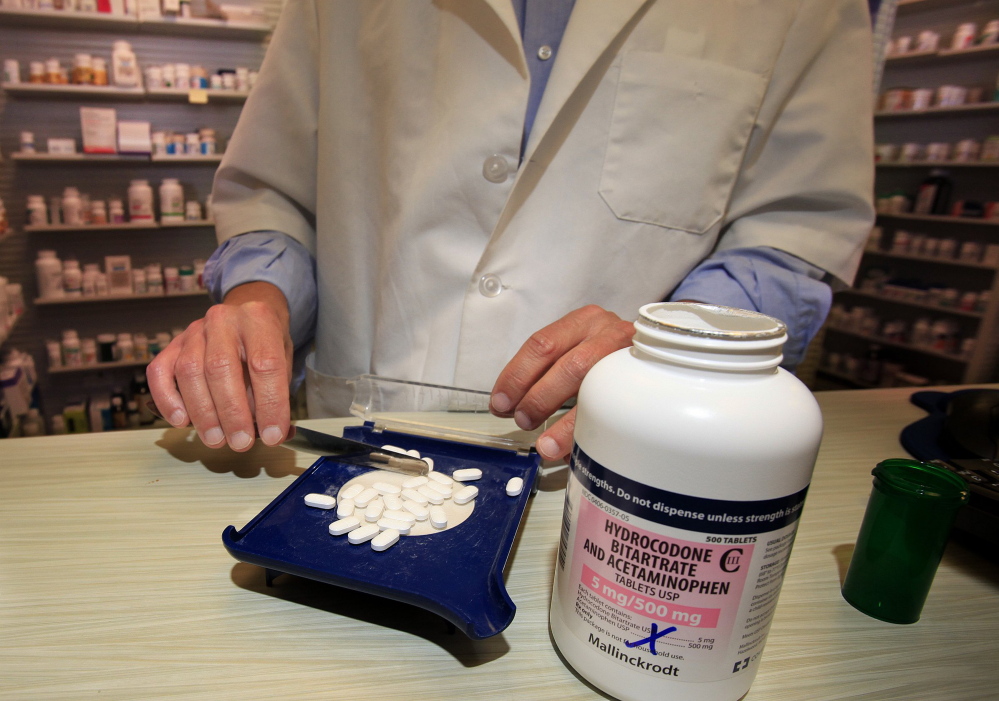As reported by Lee Chick and Lisa Letourneau in their May 31 Maine Voices column (“As addiction epidemic rages, let’s all be first responders against heroin”), Maine has a serious problem with addiction to heroin (as well as to alcohol, which was not mentioned).
One way to address this problem is not by not prescribing opioids. Not prescribing opioids or not using them for pain is definitely not an evidence-based practice. It’s also cruel, ineffective in regard to addiction and seriously ethically challenged.
For every account of someone who got addicted to opioids when they were prescribed for them, we can present an account of someone living with persistent pain whose quality of life has been improved (and even saved) by opioids.
There is no evidence that taking opioids for pain frequently leads to addiction. According to a Cochrane Library review, the studies, while not strong, do show a prescription opioid addiction rate of 4 to 5 percent. (The addiction rate for alcohol is much higher.)
That opioids are overused is an opinion, not an evidence-based fact. Opioids remain first-line therapy for acute pain such as broken bones, kidney stones, torn muscles, appendicitis, surgery and so on. Even a “minor” procedure can be incredibly painful. In fact, pain poorly controlled in the acute stage frequently becomes persistent pain, with the now-malfunctioning nerves sending a wrong message.
Opioids have been shown over and over to be effective in managing persistent pain. Many different diseases and conditions result in persistent pain, from cancer to trauma to post-herpetic neuralgia to different types of lower back pain and so on.
Each person experiences pain differently and responds differently to interventions (medication and non-pharmaceutical). Many times, medications or interventions that would decrease the amount of opioids needed (or even replace them) are unaffordable. Say “yes” to opioid prescriptions for pain and do proper monitoring.
Send questions/comments to the editors.


